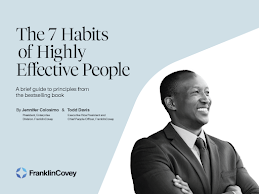How to Earn Trust
This article originally appeared on Microlearning, our bite-sized online solution for leaders and individual contributors.

You’ve heard the old saying about trust being earned, not given. Fair enough. But how do you earn it?
1. Demonstrate trust.
The first step to earning trust is to trust others. Trusting someone else is a risk — that’s part of what trust means. If you want others to take a risk on you, take a risk on them first.
2. Put others’ interests before yours.
People are much more likely to trust someone who they believe has their best interests at heart. Learn others’ values and goals, and go out of your way to try to help them and show you care whenever possible.
3. Match your actions and values.
Walk the talk. You might claim to value certain things but are they realized in your actions? Any disharmonies create confusion and erode trust.
4. Keep your word.
Don’t lie. Keep secrets secret. Do what you say you will do, and do it when you say you’ll do it — every time. If you absolutely cannot deliver on an assignment, appointment, or commitment, let the other party know immediately, and come armed with options.
5. Share information.
This demonstrates trust, especially if the information is considered privileged. Being open with information creates a sense of “we’re all in this together” and draws people together.
6. Tell it straight.
Be open and honest (even about bad news), use simple language, call things as they are, and don’t manipulate facts or leave false impressions. These behaviors all build trust by giving others confidence that you won’t hold anything back from them or try to take advantage of them.
7. Provide feedback.
Delivering and asking for direct feedback in a rational, objective way establishes your credibility as someone who has the courage to confront problems and find solutions.
8. Admit and own mistakes.
Admitting mistakes builds your integrity and trustworthiness. Admit mistakes promptly, describe why you were wrong, and tell the affected party what you’ll do about it.
9. Be consistent.
Consistency and predictability lead to a sense of safety and comfort, which increases trust.
10. Stay positive and fair.
Assess decisions, suggestions and ideas on their own merits (not based on how well you like the person who proposed them) and try to be as impartial as possible.










